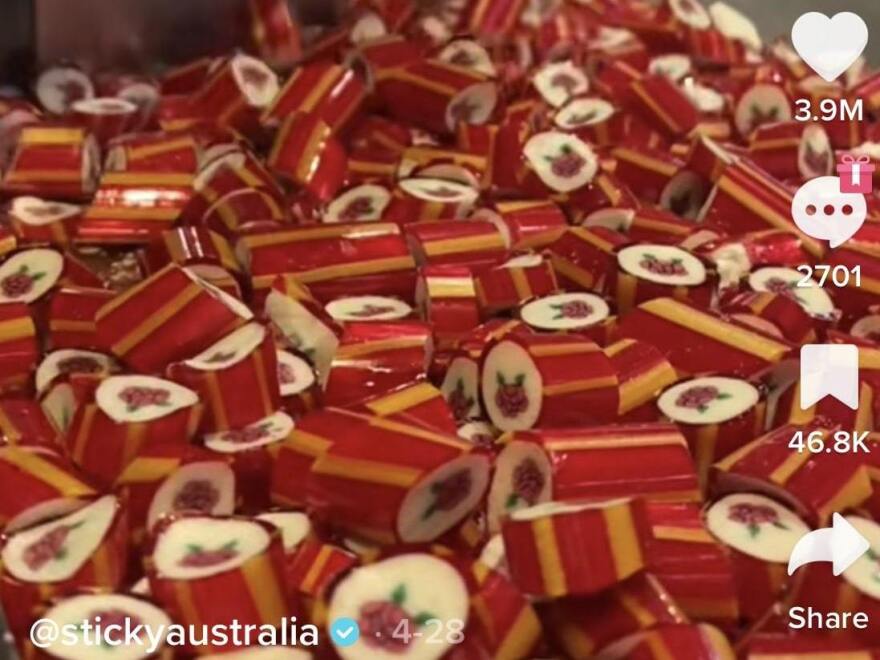After the COVID pandemic hit Australia in early 2020, the Sticky candy shop in Sydney was on the verge of shutting down. But then, owner David King decided to take some business advice from his daughter, Anabelle: join TikTok.
King had been running the shop for around twenty years, after leaving his career as a lawyer to pursue a new-found love for confectionery.
"I can't say I'd always had a passion for sugar or I'd always had a passion for confectionery. It seemed like such a wonderful process," says King.
The shop specialized in making hard candies with intricate patterns inside.
"It starts as this large quantity of molten sugar. We cool it and add colors. It bubbles. We then sculpt it quite large. We build one giant cylindrical – what we would call a lolly, but you guys would call a candy," says King.
After cutting into the cylinder, shapes, colors and phrases are revealed, having been carefully sculpted into the candy from the very beginning.
The business was doing well – until COVID hit. In March of 2020, customers disappeared. So, Anabelle suggested they double down on social media. They began livestreaming the candy-making process. The first stream only had thirty views – but, in time, more and more people started watching.
But Anabelle, who was in her last year of high school at the time, wanted to take things a step further. She tried to convince her father to start a TikTok page for Sticky.
King was hesitant at first, having never heard of TikTok in the first place. But he let Anabelle give it a try.
It worked. In the two years since making the account, under the handle @stickyaustralia, the Kings have gained 6 million followers, with fans all over the world. The store itself has tripled its revenue.
Aside from the growth of the business, the success on TikTok has also changed Anabelle's life trajectory as well.
"I would never have made a decision to go into marketing and media if it hadn't been for the work I was already doing. It was not something that would have ever occurred to me to do," she says.
For David King, the best part has been connecting with viewers from all over the world, all over the shared love of lollies.
"People reach out all the time and tell me and us that we've saved their lives in a dark time," he says. "What people have given back to us and what we've given to them has made for really interesting and quite powerful community."
Now, the Sticky candy shop is bustling again, this time with a huge network of fans and supporters rallying behind it. Anabelle and her father spend their days making both candies and videos together. Aptly, she thinks it's all "pretty sweet."
Copyright 2022 NPR. To see more, visit https://www.npr.org.








